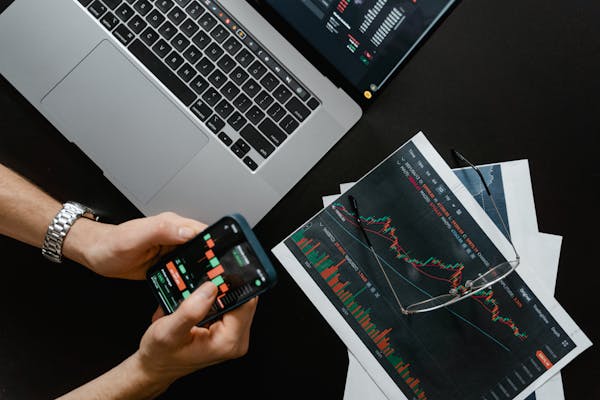A cryptocurrency exchange is a place where you can buy and sell cryptocurrencies. It operates similarly to an online stock or commodity brokerage. However, it is not regulated like traditional investment firms.
Some of the best crypto exchanges offer a wide range of advanced trading options, robust security, and user-friendly interfaces. Some also have a history of addressing customer-related issues. Have a peek here.
Platforms
There are many different platforms to buy and sell cryptocurrencies, but the best ones offer a large number of supported coins, robust security, and advanced trading options. Some even offer additional investment services, such as digital asset custody and staking. One of the most popular crypto exchanges is Coinbase, which offers a user-friendly platform and a variety of features.

Cryptocurrency exchanges are online marketplaces that match cryptocurrency buyers with sellers. They are often backed by fiat currencies, such as the U.S. dollar, enabling users to deposit local currency into an exchange account or crypto wallet. They can also accept a range of other payment methods.
When choosing a cryptocurrency exchange, look for fast registration and verification processes and a user-friendly interface. You should also consider the exchange’s security measures and prior security breaches. Some exchanges also offer cold wallets, which allow you to store your coins offline and out of reach of cybercriminals. Others offer perks like interest-earning accounts and loans, but these are less common.
Fees
While trading cryptocurrencies can be lucrative, it’s important to know the fees associated with each transaction. These charges can have a significant impact on your profit margin. Whether you’re a new investor or a veteran, understanding how these fees work can help you optimize your portfolio and maximize your returns.
Exchange fees vary between centralized and decentralized platforms. Some exchanges charge a flat fee for each trade, while others use spreads to make money on every sale and buy. Regardless of which type of exchange you choose, it’s critical to ensure that the exchange has tight security practices and excellent customer support.
Deposit and withdrawal fees are also common for cryptocurrency exchanges. These charges cover the cost of depositing and withdrawing fiat currency, as well as network transaction fees. Typically, the higher your trading volume, the lower your fees will be. Some exchanges even offer discounts for high-volume traders. This is to reward those who add liquidity to the market.
Security
Crypto exchanges use various security measures to protect users from hacking and other cyber threats. These include encryption techniques, two-factor authentication, cold storage for funds, and regular security audits. Some also offer insurance policies to protect users from losses. In addition, they encourage their users to report suspicious activity quickly.
In order to open an account on a cryptocurrency exchange, investors will need to provide an email address and password. They will then be required to upload a government-issued photo ID and complete identity verification. This is to prevent hackers from accessing personal information and stealing user data.
Moreover, they should avoid using public Wi-Fi to access their account. This is because public networks are easily hacked, making them a perfect target for cybercriminals. To prevent this from happening, users should use a VPN connection to connect to their exchanges. This will create a secure digital tunnel, protecting their wallet and coins from hackers. In addition, they should always use two-factor authentication and be wary of phishing scams.
Trading options
A crypto exchange offers a variety of options for buying and selling cryptocurrencies. Some are centralized, and look like traditional online brokerages, while others are decentralized and allow you to trade directly from your wallet. The type of exchange you choose depends on your preferences and trading strategy.
In addition to traditional spot trading, a crypto exchange can offer traders the option of betting on the price of an underlying asset at a future date with an options contract. These contracts have a premium, which is paid to the seller when the buyer purchases the contract. The option is then exercised and settled in the corresponding coin of the underlying asset.
When choosing a crypto exchange, make sure that it supports the types of cryptocurrencies you want to trade and has convenient deposit and withdrawal options. You should also consider how the exchange stores your funds and whether it has additional security features like address whitelisting, which prevents hackers from withdrawing your cryptocurrency from their accounts.